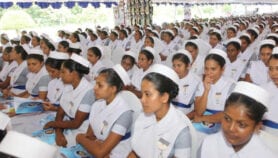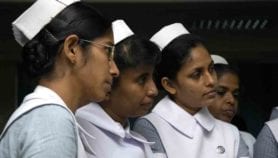By: K. S. Jayaraman
Send to a friend
The details you provide on this page will not be used to send unsolicited email, and will not be sold to a 3rd party. See privacy policy.
[NEW DELHI] A government scheme intended simultaneously to address India’s brain drain and to strengthen research in universities is set to be revived after a long break.
On 22 November, India’s Ministry of Human Resource Development ordered the University Grants Commission (UGC) to reactivate its Research Scientists Scheme. Launched in 1984 by then prime minister, Indira Gandhi, the scheme has been dormant since 1992.
The programme was intended to attract bright scientists working overseas back to Indian universities. Under the scheme, promising young post-doctoral researchers were offered full-time research positions in the universities of their choice. The young scientists received salaries and benefits matching those of lecturers and professors.
Nearly 100 scientists from several disciplines were inducted under Ghandi’s scheme before it ran into trouble with the fall of her Congress party’s government in 1989.
Twenty years after the scheme’s initiation, much of the basic research in India is done in ‘national laboratories’, away from universities. This means that the teaching centres and research centres are disassociated, a situation many believe needs to be redressed.
However, before the scheme can be reborn, disputes about its implementation, which have led to court cases, will first need to be addressed.
“The non-Congress leaders did not officially scrap the scheme, but no fresh recruitments were made after 1992,” says Daksh Lohiya, president of the University Grants Commission Research Scientists Association, which represents scientists who entered the programme.
Lohiya says the UGC, which funds and manages the scheme, went back on its promise to match the scientists’ pay to salaries of university faculty. Then, in 1999, UGC dismissed nine of the scientists. The Delhi high court ordered it to reinstate them but the UGC, says Lohiya, repeatedly appealed against the order.
The UGC’s joint secretary M. V. Krishnaswami, who is in charge of the scheme declined to explain UGC’s actions. “The matter is still in court and I cannot talk about it,” he told SciDev.Net.
Lohiya says the problem arose because the bureaucrats who handled the scheme after the fall of the Congress government did not share the vision of those who launched it.
An alumnus of Cambridge University in the United Kingdom, Lohiya was one of the five overseas scientists who made up the first batch of recruits in 1984. He says he now regrets his decision to participate in the programme, saying it amounted to “inviting talented young researchers who were abroad to work in India during their youthful years and throwing them out on the road in their old age”.
According to Lohiya, the scientists who were deprived of pay reacted in two ways. Some felt forced to leave India. Others chose to stay, even without salaries.
A. K. Sharma, a graduate of Harvard University, United States, now working at Lucknow University in Uttar Pradesh, India, went without pay for three years before it was restored by a court order.
Last week, the UGC was told to withdraw the court cases against research scientists and reintroduce the scheme, once it has been reviewed by Chinatamani Nagesa Ramachandra Rao, founder of the Jawaharlal Nehru Centre for Advanced Research, in Bangalore, and president of the Third World Academy of Sciences in Trieste, Italy.
In a press statement, the ministry said, “the implementation of the programme has caused serious friction between the scientists and the UGC leading to a number of litigations in various courts of the country.
“In all the cases, UGC lost out but went on appeals in higher Courts leading to a situation where it was spending a vast amount of money in litigations and the scientists had a feeling of gross harassment.”
Lohiya says his association is “overwhelmed” by the ministry’s gesture. He warns, however, that the scheme will not attract talent unless the scientists who are already working under it are given the status and rights of regular faculty members.
Sitanshu Kar a spokesman for the ministry told SciDev.Net “the scheme will be reintroduced as early as possible after the Rao committee plugs all the loopholes”.













